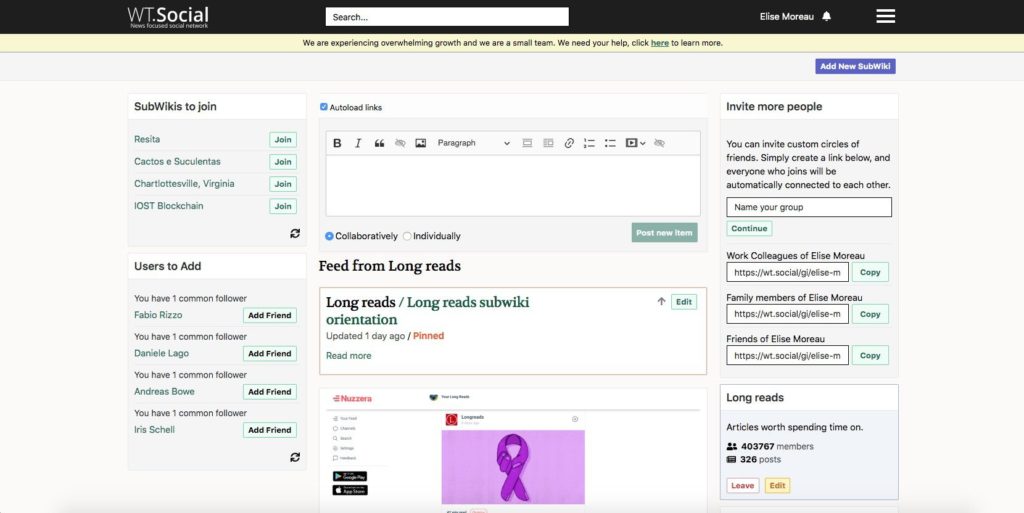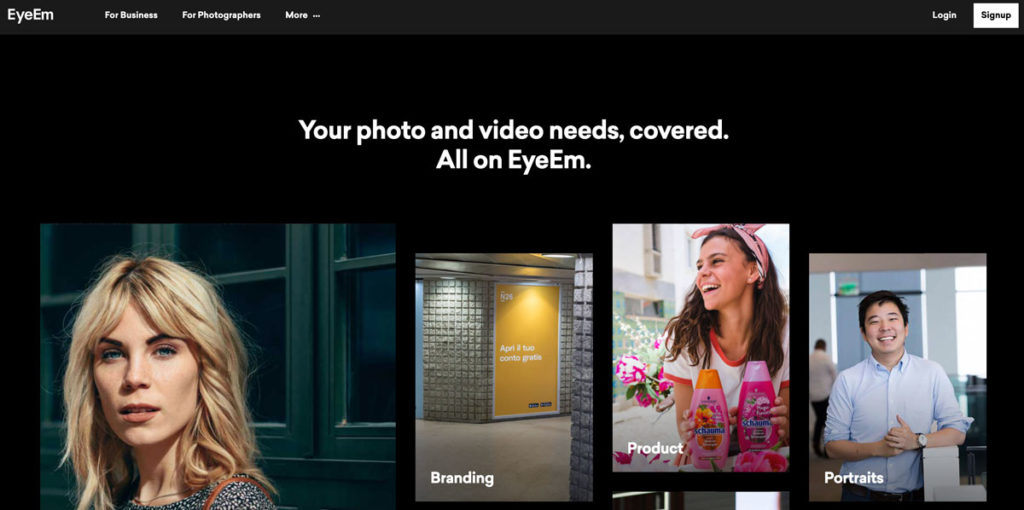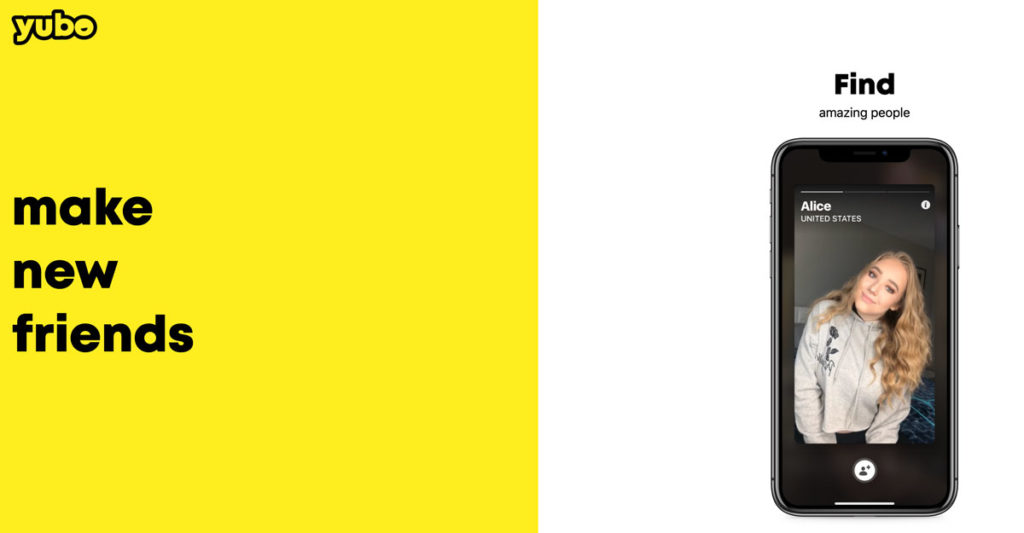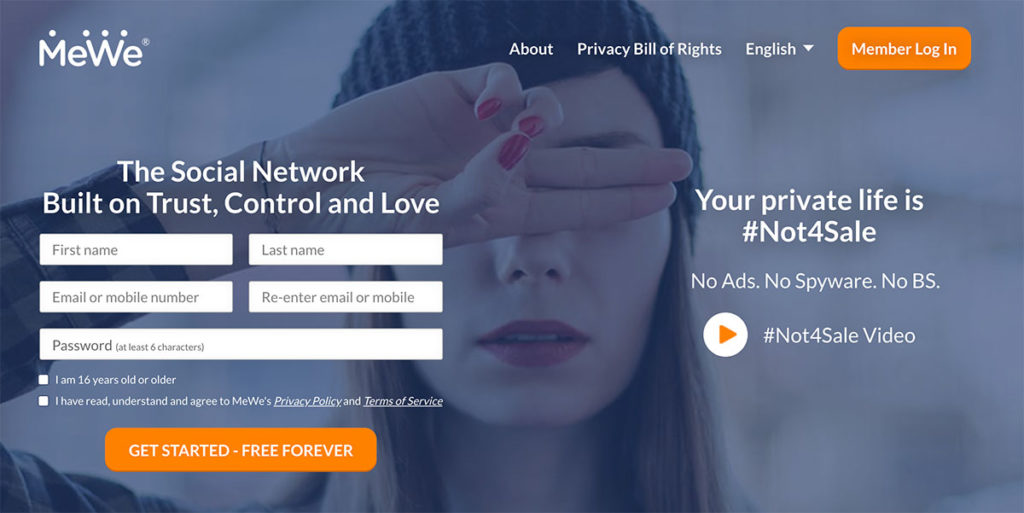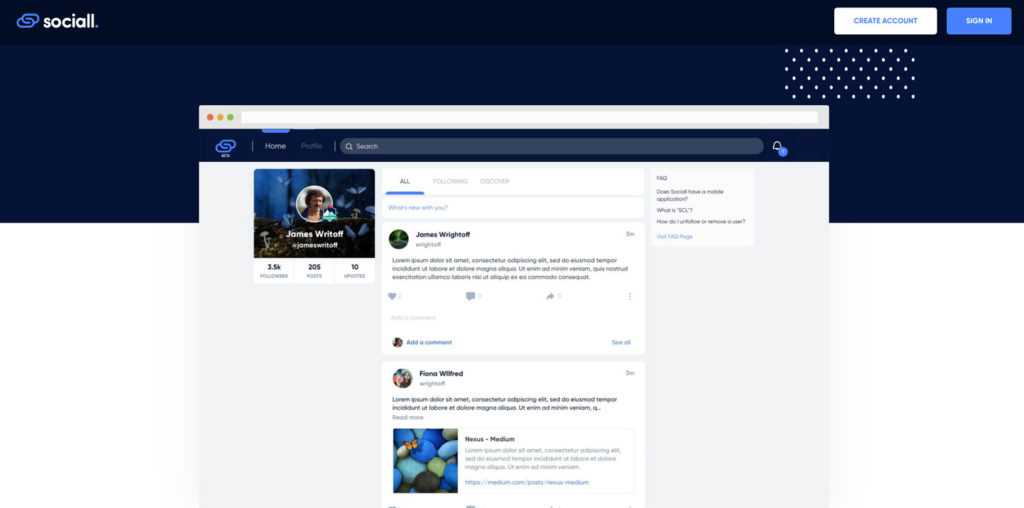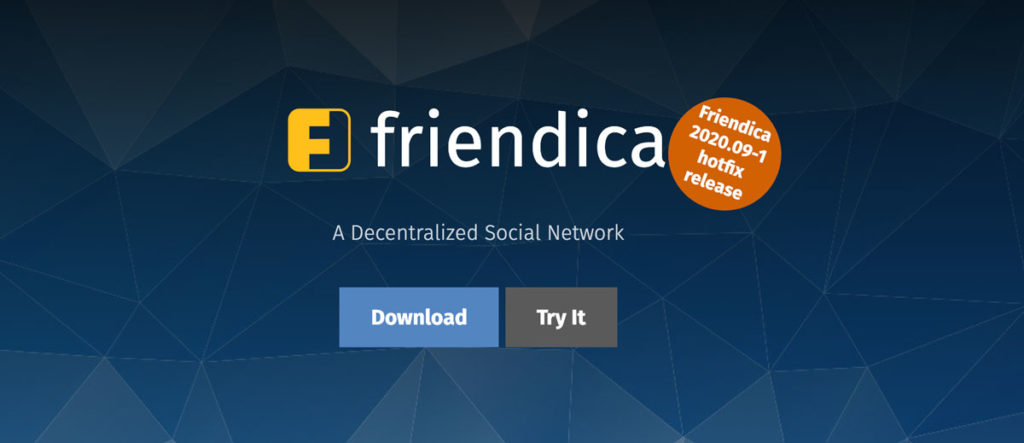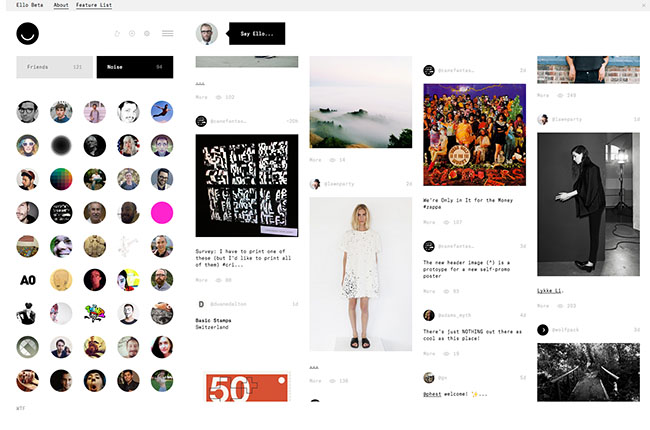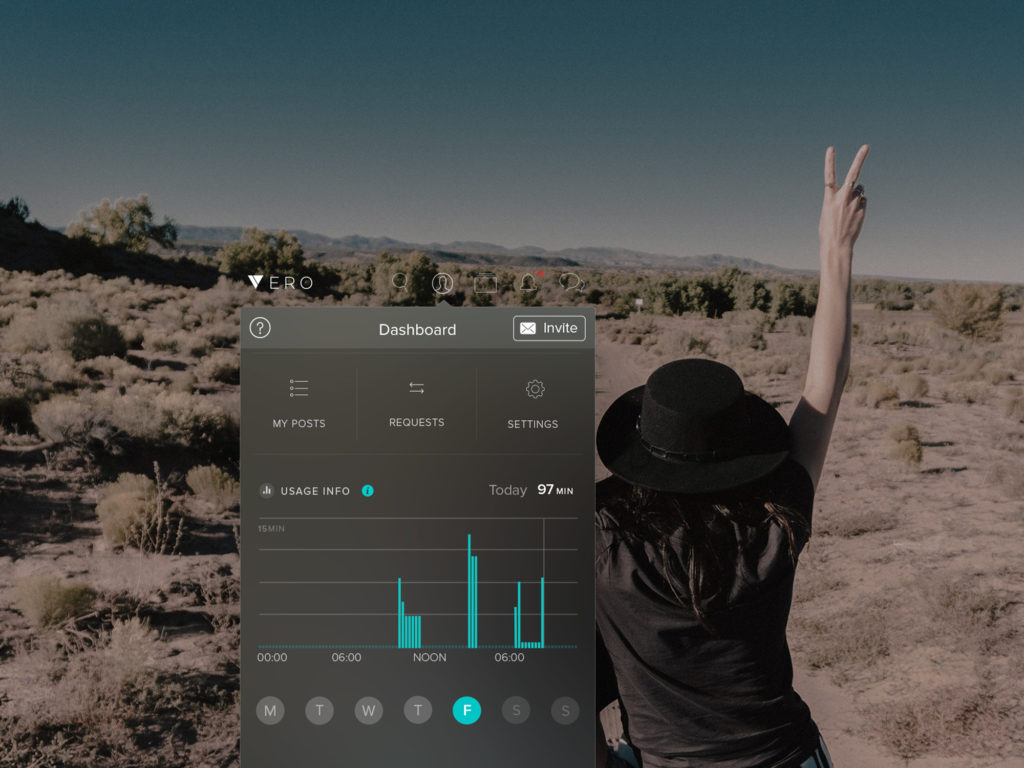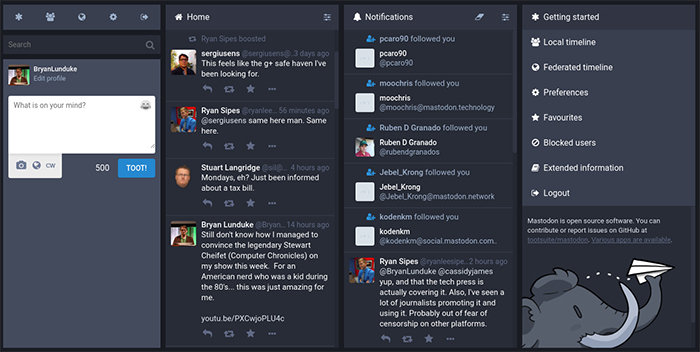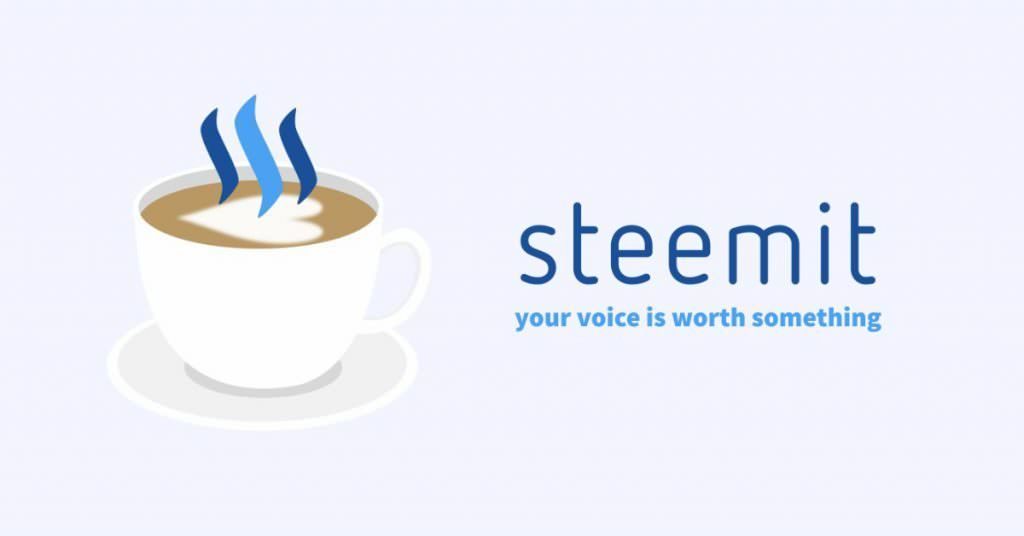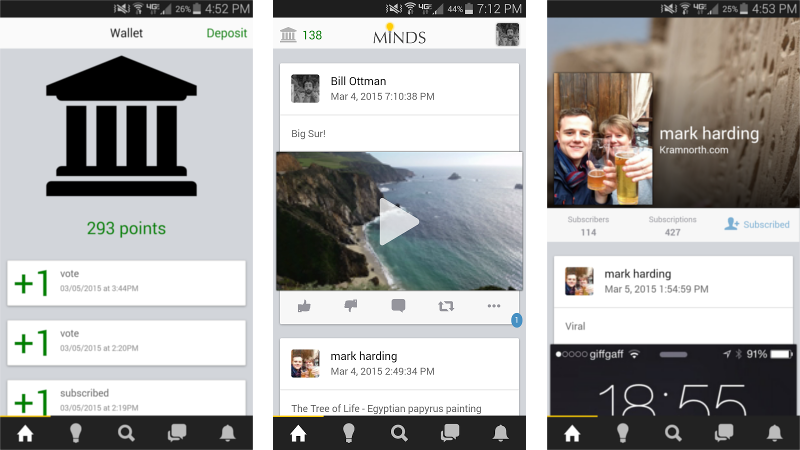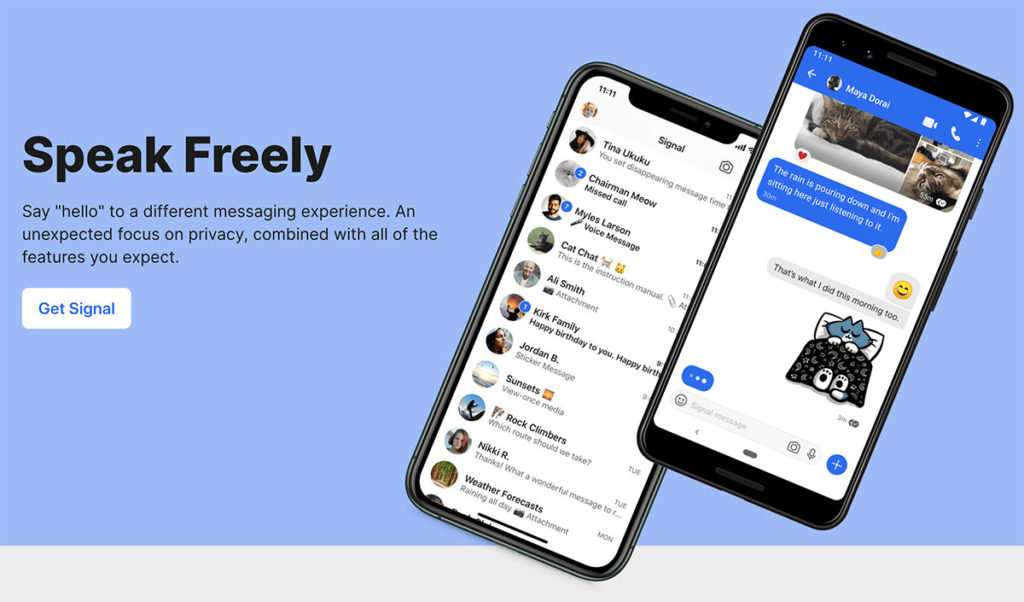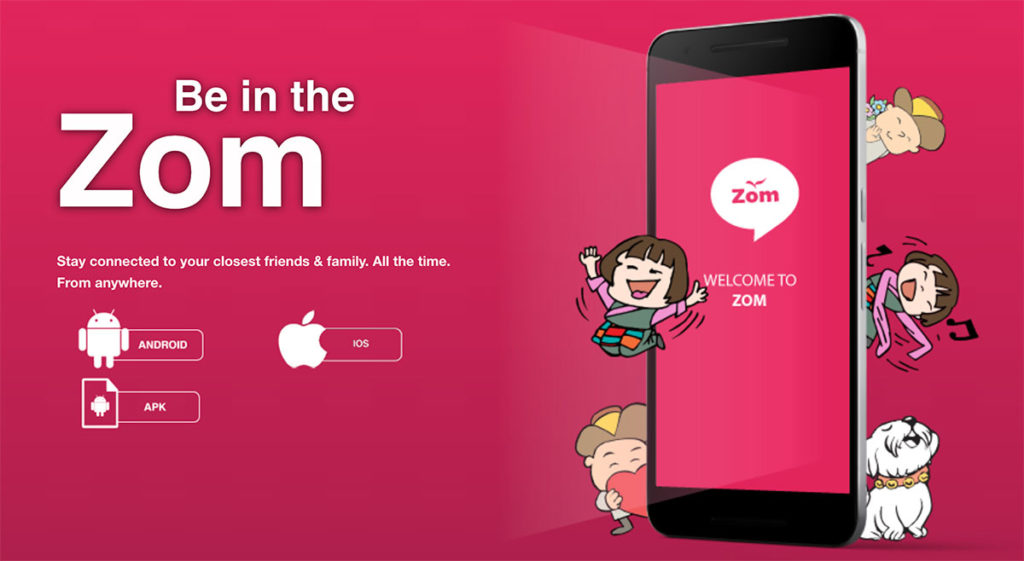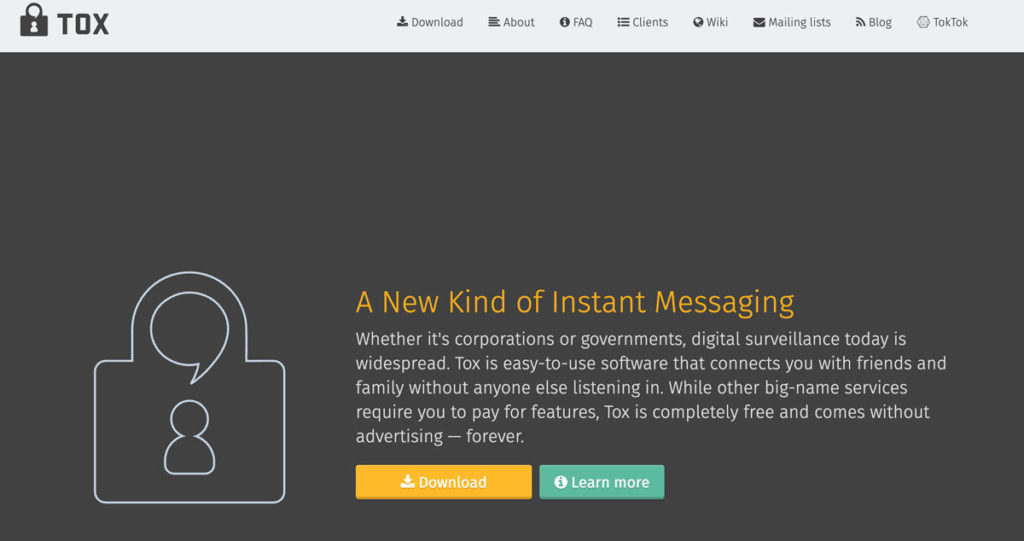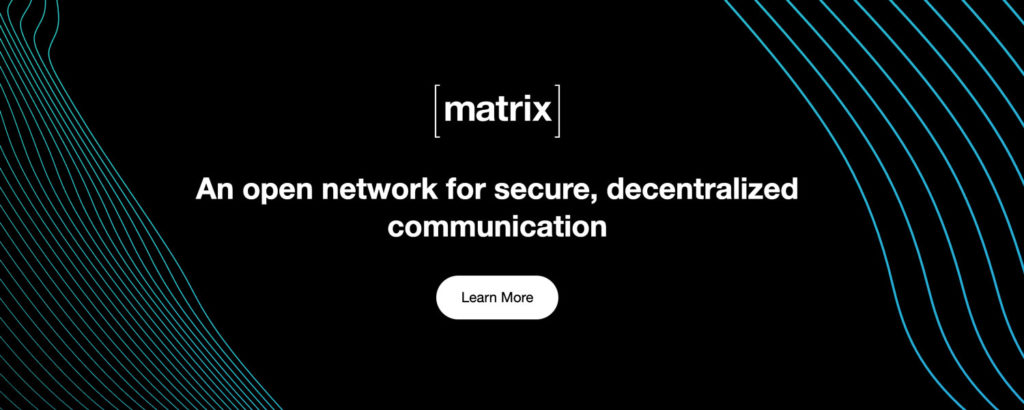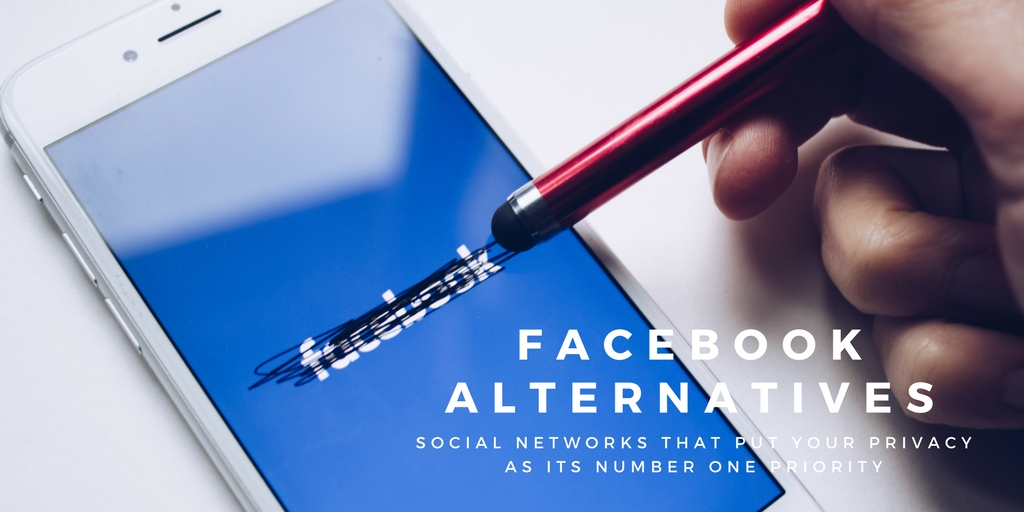
People are starting to wise up to what Facebook is doing with your data.
In fact according to the Ponemon Institute,trust in Facebook took a 66% Plunge in 2018. Over the past few years Facebook has been collecting vast amounts of data of all its users, which quite frankly is scary. You can see exactly what Facebook has on you by downloading your data zip file here.
Everything from photos and messages to mobile phone numbers of everyone in your phone. They also have all your text messages you’ve made on your cell phone! It’s crazy how much they have. And with the recent Facebookl CA scandal, people are now looking for alternatives to Facebook where privacy is respected and private information is never shared or sold to other companies or organizations.
Believe it or not, there are plenty of social networks and messaging apps that you can use instead of Facebook. For years these networks and apps have been living in the shadows of the mighty beast that is Facebook. But now is the time to explore a better way of interacting with friends and family without the fear of your data being stolen and stored on huge servers in far flung places.
Best Social Network Alternatives To Facebook
WT Social
WT Social is a social network that aims to be the complete antithesis of Facebook. The tagline says it all: WT Social is the non-toxic social network.
The network was launched by Wikipedia co-founder Jimmy Wales. Wikipedia’s micro blogging and contribution features are prevalent on WT Social. But more importantly, it lacks all of the data collection that comes with Facebook.
At WT Social, your data is not collected and sold. Not only that, but advertisers don’t dictate what’s on the site or what you see. There aren’t even algorithms to curate your feed for you. Members have full control over the user experience.
The network also takes a hard stance against misleading content. Contributors can easily edit the content that’s filled with misinformation. Furthermore, WT Social removes members who violate the terms and conditions of the site. It’s a fair and honest platform that focuses on connecting people; plain and simple.
EyeEm
If you like the photo-sharing aspects of Facebook, EyeEm may be right up your alley. Founded in 2011, this platform has evolved quite a bit since its infancy. It started out as a mobile-only app where users could upload and share iPhone photos. Today, it’s a digital space that caters to both photographers and businesses.
On EyeEm, photographers can upload their best images. Other users can then interact with photos, share them, and learn more about the art of photography.
The business side of EyeEm has taken the stock photography world by storm. EyeEm acts as a database of more than 100 million high-quality images. Anyone can license photos from the platform. However, EyeEm is particularly popular with brands and marketing agencies.
The cool thing about EyeEm is that it uses artificial intelligence to find the best images for searchers, not advertising.
Yubo
Yubo presents itself as the social network about socializing. Take one look through the app and you’ll see that Yubo isn’t about tracking users or slapping you in the face with ads every five seconds.
The platform does collect some data. But a lot of it comes with completely optional activities. Even better, Yubo is pretty transparent about data collection. The privacy policy is easy to understand and all of the terms are laid out for you to read.
Yubo is a simple network that focuses on live streaming. Members can create live sessions with up to 10 different streamers and an unlimited number of viewers. On the main page of the app, you can search for live streams based on topics. There’s also the option to follow your favorite streamers so that you always know when they go live.
The platform is aimed at users between the ages of 13 to 25. To protect younger users, Yubo separates members into two communities. Those over the age of 18 cannot interact with younger users and vice versa.
MeWe
Ever since its launch in 2014, MeWe has put privacy at the forefront. The platform touts that it’s “The Next-Gen Social Network.” How is different from Facebook? Well, MeWe doesn’t have any ads whatsoever. Your feed has nothing but content from those you follow.
MeWe doesn’t data mine or sell your private data either. The platform relies on optional paid services to generate revenue. You can buy extra storage for your Secret Chat account or pay a few bucks for custom emojis. Recently, MeWe launched a premium-tier plan with a monthly few. It also started offering enterprise-level services with a slew of paid features catered to business and collaboration.
Even with all those optional purchases, the core MeWe service is completely free for anyone to use. With an account, you can create posts, share content, and more. There’s also a secure chat system. MeWe doesn’t manipulate your feed in any way. So, you’re always in control over what you see.
Sociall
Sociall is a new platform that looks very promising for privacy-focused users. Like other networks, it has all of the standard features. You can create posts, follow others, and discover new content.
But what makes Sociall unique is its approach to privacy and data collection. The network has robust privacy features to keep your posts as private as you want. Furthermore, it has top-notch security that prevents search engines from indexing your profile.
Sociall is a decentralized platform, so it’s not owned by a single entity. The platform takes things a step further by implementing blockchain technology, too. There’s no single place where your post information is stored. This makes it harder for hackers to access and corrupt the data. It makes Sociall even more secure.
In terms of user-generated content, Sociall aims to be entirely self-governing. The developers of Sociall don’t want to control or curate the content users post. Instead, users can moderate the site to remove spam or posts that go against the community guidelines.
Friendica
Friendica is another decentralized platform that wants to provide users with more freedom. This network is a lot more complex than Facebook. But, developers aim to make it as easy for non-technical users to access as possible in the future. The hopes are to create an installation process that’s similar to WordPress on websites.
Friendica is not owned by a single person. In fact, the software is open-source and available on GitHub. The ongoing development is done by volunteers. But, that hasn’t stopped Friendica from gaining traction in the social media sphere.
When you create an account with Friendica, you must install the software on a compatible system. Essentially, you’re making your own Friendica server that you can then connect with others. It’s a great way to connect and view posts from the people you want while avoiding the rest of the noise.
Users can integrate contacts from other platforms. It’s also possible to use the platform to post on other networks. Thanks to its open-source nature, Friendica is only going to get more flexible as it continues to evolve.
Ello
Ello launched back in 2014 with quite a stir in the US as it was about the time when Facebook changed its policy on names of its members, where they had to use their proper legal name. Its popularity grew as Ello presented itself to the world as a “Facebook killer social network” which doesn’t push ads down its users’ throats and doesn’t sell peoples’ information and data to 3rd parties.
Ello is growing fast again, especially as the #deletefacebook movement is gathering pace. People want to feel safe and secure on a social network and it doesn’t seem to be that way on Facebook at the moment. Hence why platforms like Ello are gobbling up these Facebook migrants.
Ello currently is a home to artists and creative people, but has the platform to embrace all types of users.
Vero
Vero presents itself as “a social network for anyone who loves anything enough to share it – and wants control over who they share it with. Just like we do in real life.”
Vero is a subscription based social network. It shows no ads and doesn’t collect data. It’s a totally different model to Facebook in the sense that Facebook needs user data in order to make money from them. Vero does collect some usage data which is used to see how often the app is used, but note that this option by default is off. Unlike Facebook where they have everything turned on and you have to go into your settings and turn them off.
Another great thing about the usage data they collect is how its displayed to you. Vero want to address the issue of social media addiction.
Vero says that they want the platform to enhance your life and not detract from it. So they use the usage data that they collect from you to show you how much time you’re spending in the app so you can manage your screen time.
Mastodon
Mastodon launched in 2017 and made quite an impact on the social network scene. Mastodon is a free, open-source social network. When it launched it was presented as an open source Twitter competitor, but as people are leaving Facebook its being used the same way you would Facebook, which makes it a really good alternative to Facebook.
Ultimately Mastodon is a decentralized alternative to all the commercial social network platforms, which means that no single company owns it or can monopolize your communication.
Steemit
Steemit is like a cross between Reddit and Quora where you can publish your posts which can be voted up or down depending if people like them or not ( similar to both reddit and quora ).
When you get upvotes you receive Steem crypto tokens which lends itself well to those cryptocurrency and open source enthusiasts. Also people are using the platform due to its compensation to the users for spending time using the platform.
Users don’t have to post anything if they don’t want to and it can simply be used as a news aggregator or just a platform to get involved in conversations related to specific interests.
Steemit has about 10 million visits per month which in comparison to Facebook is tiny! But its growing and it doesn’t gobble up your personal data and sell it to 3rd parties.
Raftr

I love the initial sign up page as it gives you two options.
1: Find out what’s going on in the real world
or
2: Connect with people at your college / work / family etc.
What data do they collect?
Raft collects some data, but that’s only to build your profile. They do not share any of your personal data with 3rd parties.
Raft is a great alternative to Facebook and a platform where you can follow news, events and interests relevant to you.
Diaspora
Diaspora is also in the mix when it comes to Facebook alternatives. Diaspora is a decentralized social network that is nonprofit and runs on free Diaspora software. The software is in the form of a free personal web server.
As I just mentioned, Diaspora is decentralized which means no one person owns it. This means that it doesn’t have any form of advertisement and corporate interference. It also does not collect any of your data. When you create your account, you are responsible for your own data and retain the ownership of your personal data.
Unlike Facebook, Diaspora allows you to use whatever identity you want, so pseudonyms and nicknames are fine to display as your profile. You can use hashtags, mentions, text formatting, etc.
Minds
Minds is an open source social network that was created by Bill Ottman, John Ottman and Mark Harding in 2012, but launched to the public in 2015.
The platform is a community-owned social networking platform that rewards its users for their activity online, similar to the Steemit platform. They do this with paying users in crypto and providing users with more views on their posted content. Minds will monitor each users daily contribution and relative to the community. The amount a user gets will be determined by their percentage across the network which then determines their share of the Daily Reward Pool of tokens.
Minds social network is built on a foundation of freedom, transparency, privacy and democratization.
Alternatives to Facebook Messenger / Whatsapp
Signal
Signal is a feature-rich messaging app that’s open-source and free to use. Unlike Facebook Messenger and Whatapp, Signal is built with security and privacy in mind. Every conversation you have, whether it’s with a single person or a group, uses end-to-end encryption. This ensures that your data is safe from prying eyes.
Security features aren’t some optional toggle you enable in the settings menu. It’s what Signal is built around. Not even the developers have access to your conversations.
The app is very intuitive and comes with all the features you would expect from a modern messaging platform. You can send text-based messages, voice memos, photos, videos, and more. There are even voice and video chat. Signal uses standard cell numbers to keep your name private. Plus, there are several ways to verify the identity of someone trying to communicate with you through the app.
Zom
Zom is another great alternative to Facebook Messenger and Whatsapp. This mobile messenger platform is available for Android and iOS devices. It’s also open-source, so you can use the APK to install the app on a wide range of devices.
Zom was developed by a group of friends with an interest in Tibetan culture. The first thing you’ll notice about the app is the cute Tibetan theme. The adorable cartoons and stickers certainly add a unique touch to the messaging service!
Like other privacy-focused apps, Zom doesn’t gather a ton of information about you. You don’t even need to provide a real name or email address to sign up! Just create a unique username and you’re good to go.
Once you have your account set up, you can start chatting with others. There’s also the ability to create groups, send voice messages, share images, and even send files.
Tox
The story of Tox is one that’s all too familiar in today’s digital landscape. The instant-messaging platform in the brainchild of aa team that was fed up with apps that spied, tracked, and censored users. Instead of continuing to use those platforms, the team created its own. The end product is Tox!
Tox uses open-source software. It relies on peer-to-peer technology to safely connect you with trusted friends and family. Every connection is encrypted using open-source libraries. So, the only people who can view your conversation are those who are a part of it.
To make things even better, Tox doesn’t have a centralized server or database. It’s all powered by the DigitalOcean cloud infrastructure. So, hackers can break in and steal data.
Tox focuses on providing users with a safe and advertiser-free platform. You don’t have to be worried about being bombarded with ads or having your data collected and sold. It’s a free platform that has all the features you would ever need to stay connected.
Matrix
Matrix is an interesting network that utilizes some advanced technology to improve your privacy. It’s an open-source network that’s completely decentralized. The messaging platform is maintained by a non-profit organization that’s independent of big corporations. As result, your information stays safe from data miners, advertisers, and hackers.
Technically speaking, Matrix is a conversation store rather than a traditional messaging system. When you send messages to friends, data is replicated through all the servers of those participating in the chat. There’s no one data storage center. That means that there’s no single control point or vulnerable point, either.
All of your conversations are secured with end-to-end encryption as well. Whether you’re sending files or making voice calls through VoIP, everything is safe.
One cool thing about Matrix is that you can connect across platforms. Matrix acts as a secure bridge to other networks, allowing them to link together. It truly creates a larger matrix of safe communication.
Telegram
Telegram is a cute little messenger filled with fun artwork and animated mascots. But don’t let the colorful nature fool you. Telegram uses some strong encryption techniques to keep your conversations safe.
The messaging client is free and open-source. So, it’s available to anyone. However, the server-side of the communication system is closed and proprietary.
Telegram utilizes a couple of different forms of encryption. For standard cloud-based communication, client-server/server-client encryption is used. Your data is also encrypted at rest when it reaches the server for another layer of security. Secret chats between users use full end-to-end encryption.
In addition to being safe from hackers, your Telegram data can self-destruct. There are several optional settings that you can use to ensure that Telegram destroys your data after a specified period.
The Telegram client app has a ton of unique features. You can send simple messages, chat with groups of up to 200,000, share files, and more. Messages can sync across multiple devices, too.
Please remember we all have different opinions, Think Before You Speak or Write Something that is cruel to Others. After all, We are only Humans. Wishing you clear skies and wide eyes. To share your experiences or just leave a comment there is a area below. Read or listen.
We are the change the world has been waiting for!
Have you witnessed an unidentified flying object?
Whether you think UFOs are black projects, extraterrestrial craft, something else altogether, or just don’t know.
Unconditional love. The road we all get to walk. Unconditional love is like the sun.
WE ARE THE DISCLOSURE ~ WE HAVE NEVER BEEN ALONE
Love and Regards,
Happy Quarantine
Thank You,
Nancy Thames



